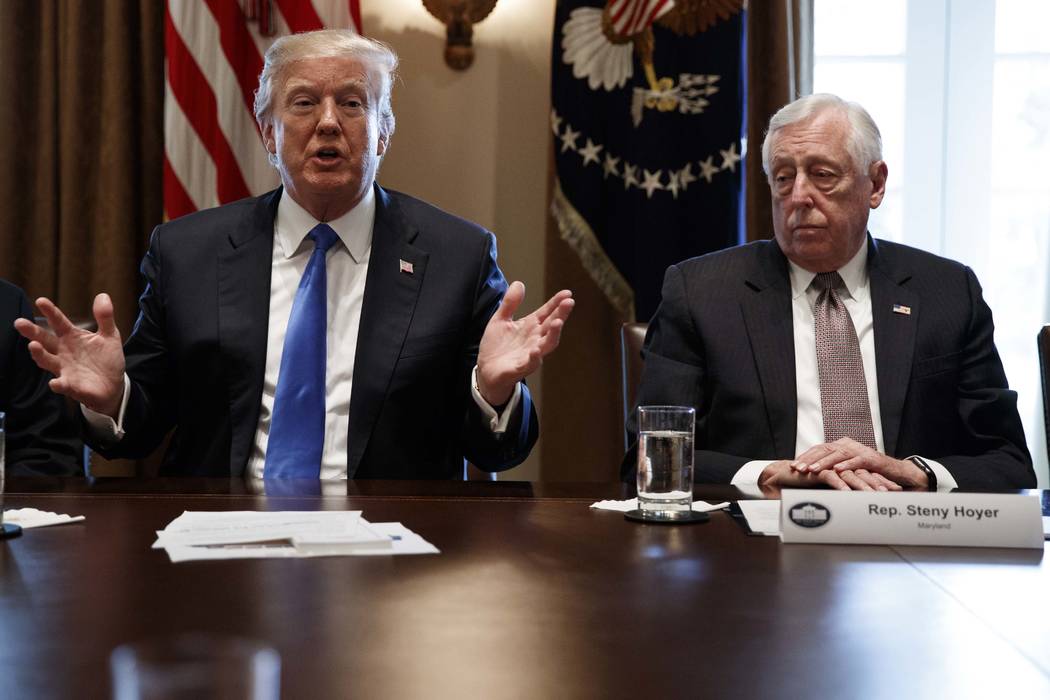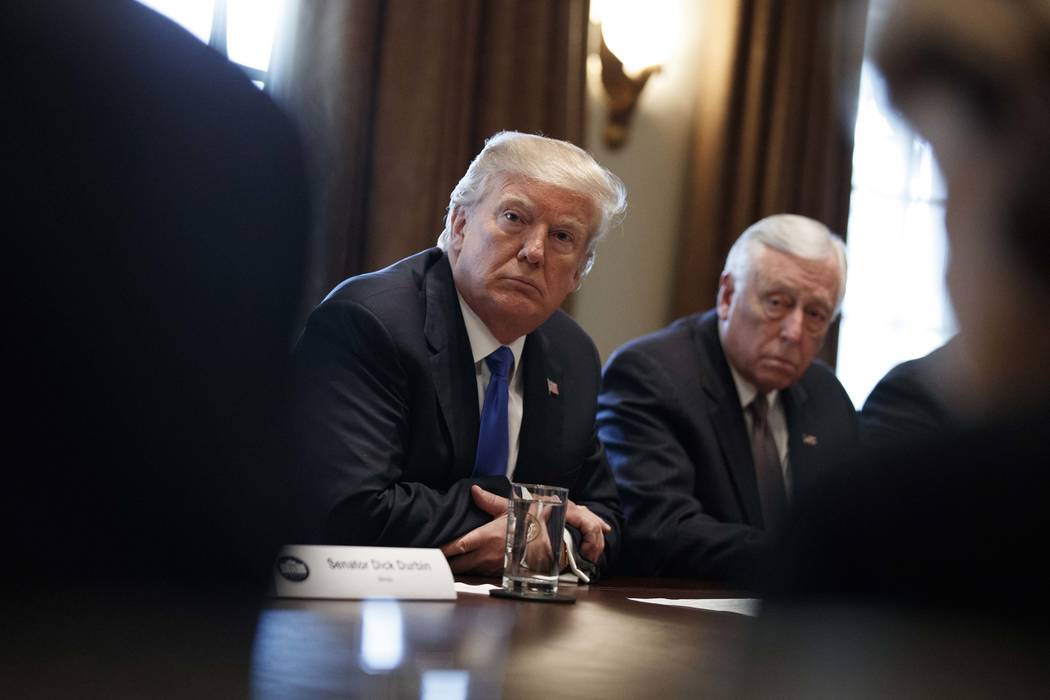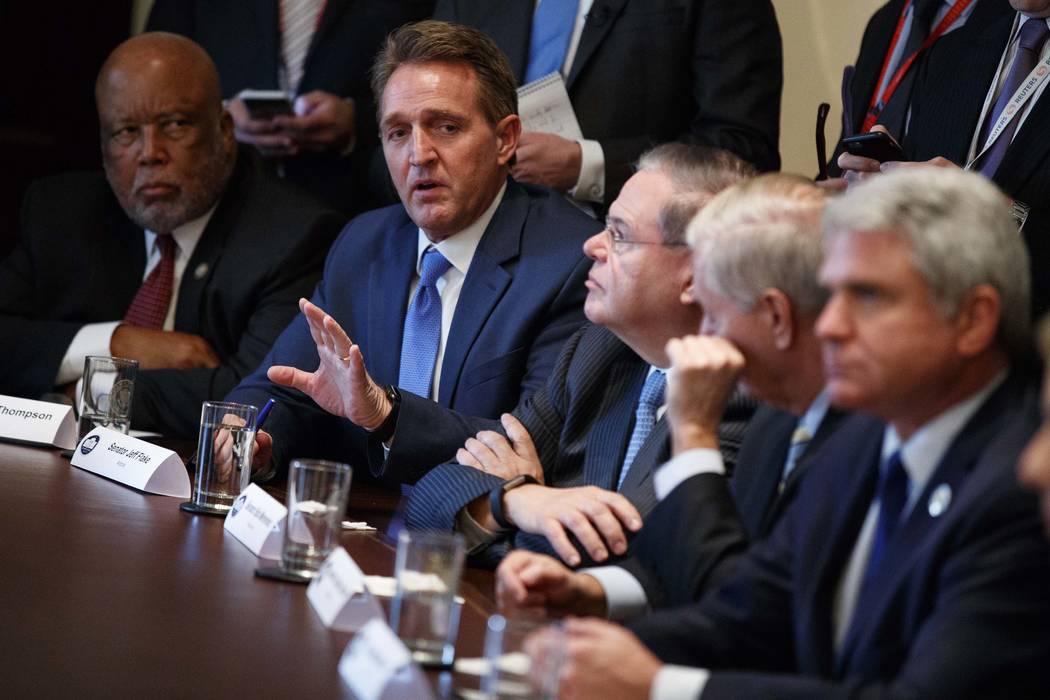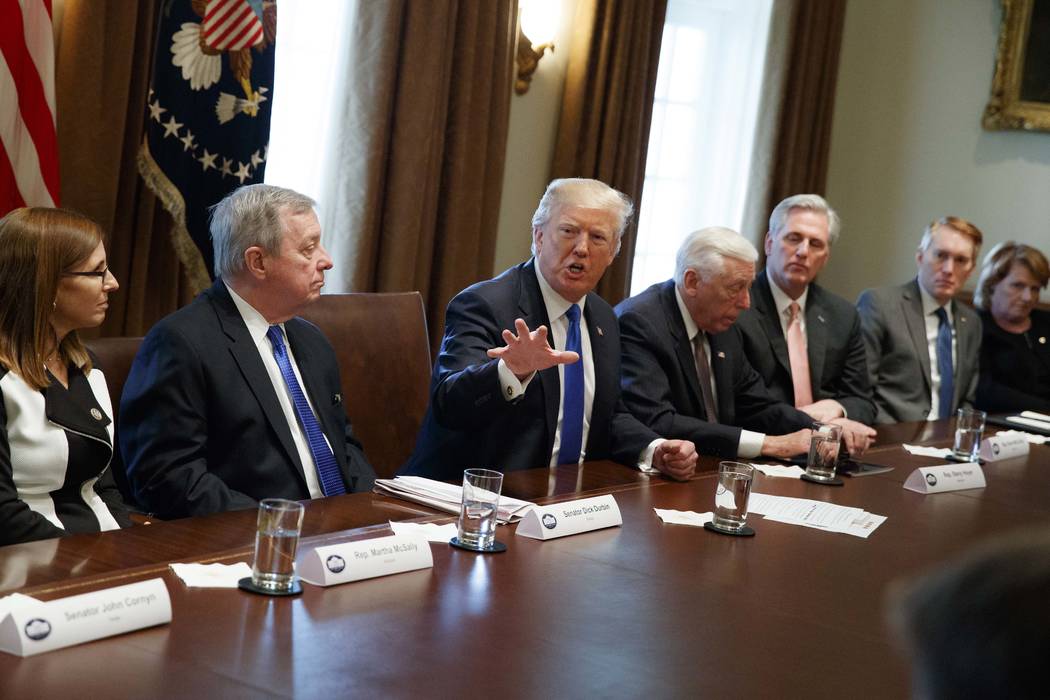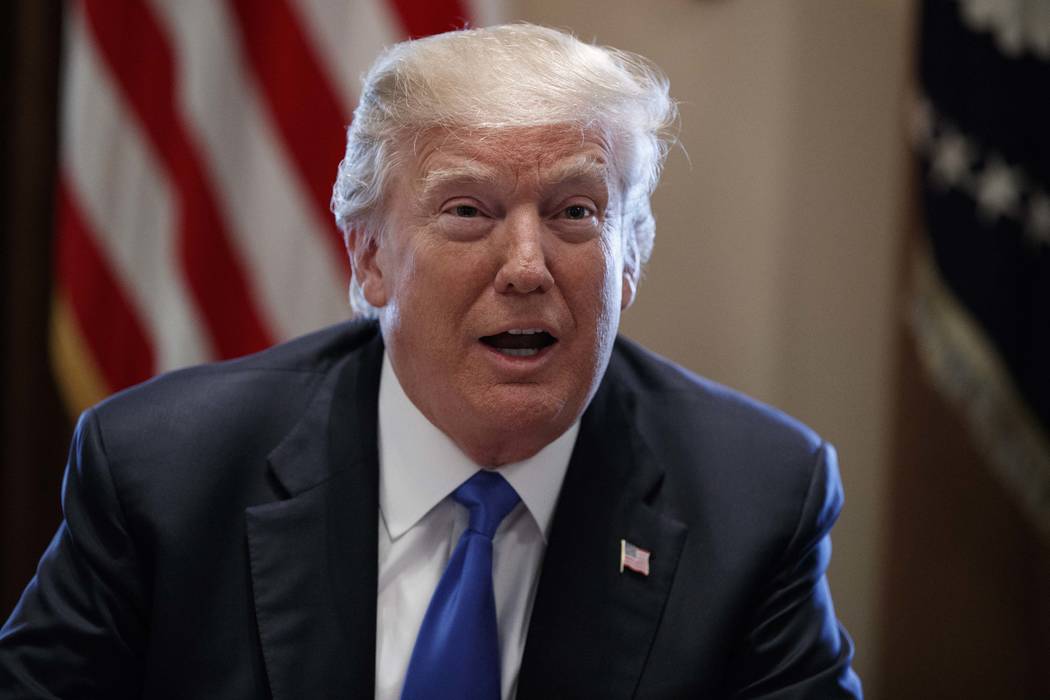Trump opens curtain on negotiations over spending bill, immigration
WASHINGTON — President Donald Trump threw back the curtain on Washington negotiations Tuesday as he allowed the media to witness and broadcast a meeting with Democratic and Republican lawmakers intended to hammer out a temporary spending bill.
The unusual maneuver showed that Trump was ready and eager to compromise as various Democrats and Republican leaders squirmed a little. And it belied Michael Wolff’s book, “Fire and Fury: Inside the Trump White House,” that portrayed Trump as not interested in policy details.
The purpose of the meeting was to negotiate a temporary spending bill likely to include an extension of President Barack Obama’s Deferred Action for Childhood Arrival program, or DACA, which gave legal status to some 800,000 undocumented immigrants brought into the United States as children. Democrats have framed a DACA extension as essential to agreement.
Trump, too, wants a deal that extends DACA but also funds a border wall, limits family chain migration and ends the visa lottery system, which he blames for admitting Sayfullo Saipov, the suspect charged in October’s West Side Highway truck attack.
Democrats have been pushing for what Sen. Dianne Feinstein, D-Calif., called a “clean” bill — that is an extension of DACA without security provisions.
Trump seemed to agree with Feinstein on the need for a clean bill, as long as a measure included border security.
“A clean DACA bill to me,” Trump said, includes DACA “and we also take care of security.”
Deadline looms
Washington has until Jan. 19 to enact a spending measure to avoid a government shutdown. Democrats have threatened to risk a shutdown if they do not get a measure that includes a DACA extension, although they backed off from a similar threat in December.
Trump’s extension of the DACA program ends on March 5. But last week, three former Homeland Security secretaries — Michael Chertoff, Janet Napolitano and Jeh Johnson — wrote a letter warning congressional leaders that a “realistic deadline” was mere weeks away, given problems processing paperwork and the need to protect recipients from deportation.
Feinstein pressed Trump and House Majority Leader Kevin McCarthy on whether they believed they could negotiate a DACA bill “in time.” McCarthy responded that he does believe it is possible.
The White House later explained the meeting had two parts. The first occurred before the media pool, which had expected an opportunity to listen to his opening remarks and throw out a few questions, but remained for nearly an hour.
Representatives continued to talk off-camera in the meeting’s second part. Later, Press Secretary Sarah Sanders said in a statement that Trump and congressional leaders from both parties “reached an agreement to negotiate legislation that accomplishes critically needed reforms in four high-priority areas: border security, chain migration, the visa lottery, and the Deferred Action for Childhood Arrivals policy.”
During the open portion of the meeting, Trump said he believed Democrats support border security. Democrats in the room agreed, but they did not elaborate on what they believe border security should look like, and they frequently voiced their opposition to building a border wall.
At one point, Democratic Sen. Mazie Horono of Hawaii challenged Trump. “You have put it out there that you want $18 billion for a wall or else there will be no DACA,” she said. “Is that still your position?”
“Yeah,” Trump responded. “I can build it for less, by the way.”
Feinstein suggested putting off border security for a later comprehensive immigration effort.
‘A bill of love’
While Trump said he could not conceive of border security without a wall, he began the meeting by saying that he would back whatever bill Congress sends him.
“If they come to me with things that I’m not in love with, I’m going to do it,” Trump asserted. “Because I respect them.”
Unlike last year’s tax cut bill, which passed with 51 votes, the spending measure at hand will need 60 votes to pass. There can be no spending bill without Democratic votes.
At one point, Trump suggested that Congress restore “earmarks” — or pet program allotments that former House Speaker John Boehner ended in 2010 to curb congressional pork-barrel spending — to make it easier for both parties to work with each other.
As a candidate, Trump had promised to end Obama’s DACA order immediately. While Trump has stuck closely to his promise to build a border wall with Mexico, he walked away from his DACA promise during his first month in office.
During a February press conference, Trump confessed DACA is “a very, very difficult subject for me” because of the “incredible kids” who came to the United States as minors. Trump promised to “deal with DACA with heart.”
In September, Attorney General Jeff Sessions announced an “orderly wind-down” over six months of the 2012 Obama order, as the administration believed lawsuits threatened by attorneys general from 10 states opposed to the program would prevail. Trump on Tuesday repeated the argument that Obama did not have the right to override federal immigration law without going through Congress.
Trump also spoke of his desire to work across party lines to pass “a bill of love.”
Contact Debra J. Saunders at dsaunders@reviewjournal.com or at 202-662-7391. Follow @DebraJSaunders on Twitter.
Trump and Oprah
During Tuesday's meeting, reporters asked President Donald Trump about speculation that Oprah Winfrey will run for president.
"Yeah, I'll beat Oprah," Trump said. "Oprah will be a lot of fun. I know her very well."
Trump added, "I don't think she's gonna run."
In 1999, Trump told CNN's Larry King that Winfrey would be his first choice to be running mate if he ran for president. Trump answered that he did not consider running for the Oval Office, but "I love Oprah. Oprah would always be my first choice."



